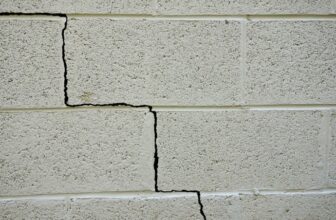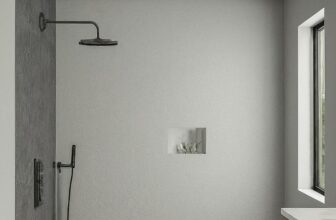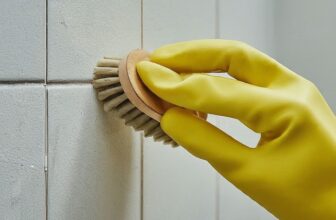
After a productive day’s work, all your body needs is a good night’s sleep. You’ve had your dinner, freshened up, and prepped for bedtime. Then, barely three hours into your sleep, you’re drenched and rudely awakened. And no, this is not because of the hot weather, as it is even winter.
Night sweats are uncomfortable and leave you stressed out the following day. Night sweats are repeated occurrences of excessive drenching even when the environment is relaxed. This repeated poor sleeping pattern affects productivity.
And this means you could change your nighties twice before morning. A cooling mattress is a great way to manage night sweats as it doesn’t retain heat. In contrast, a conventional foam will absorb all that heat and make you feel worse. But first, what are night sweats, and how is it different from sweating?
What are Night Sweats?
Night sweats are profuse sweating at night, triggered or caused by an underlying medical condition. It is not a result of heat but could be aggravated by heat. Doctors often refer to it as hot flashes, a sudden increase in temperature, especially the upper body, to differentiate it from normal sweating.
What Causes Night Sweats?
Medical conditions, hormonal imbalances, and drugs are some of the biggest causes of night sweats. However, it is possible to experience night sweats even in the winter, especially with medical conditions. Here are common signs to look out for:
Menopause
Hormonal imbalances characterize this transitory phase in women’s reproductive years. Women also experience hot flashes during this period. Hot flashes could be responsible for night sweats, especially in women. Research shows that 75 percent of women in the menopausal stage experience them.
Infections
These are also often responsible for night sweats. Infections such as HIV and tuberculosis are the most common infection that causes night sweats. Endocarditis, an infection of the heart, is another cause of night sweats. A bone infection known as osteomyelitis can also be responsible.
Medications
Drugs like antidepressants, hormone therapy drugs used in cancer treatment can also cause night sweats. Hypoglycemic agents found in medicines used to treat low blood sugar also cause night sweats.
Hormone Disorder
Hormone disorder can cause an increase in sensitivity to temperature, anxiety, and complications with metabolism. This change can contribute to night sweats.
Pregnancy and Postpartum
The change in estrogen and thyroid levels increased blood flow, and higher heart rate makes pregnant women experience night sweats. During postpartum, while the body is trying to readjust after the baby, women can also experience night sweats.
Neurologic Conditions
Damage to neurons can cause a change in normal bodily functions. Common neurologic disorders that can cause night sweats include damage to the autonomic neuropathy, stroke, and syringomyelia, a fluid-filled cyst in the spinal cord.
How Can I Combat Night Sweats?
Lower Your Alcohol Consumption
Alcohol directly impacts the central nervous system. It causes sweat by increasing heart rate and widening blood vessels. It also affects how the body regulates and senses temperature. Lowering alcohol intake can reduce night sweats.
Consider a Cooling Mattress
When there’s a disruption to the body’s hormones due to pregnancy or menopause, body heat increases. The worst thing at that point is to have a foam that absorbs heat. Besides being temperature-neutral and great for night sweats, it provides pressure relief from pain points otherwise experienced on standard mattresses.
Making them a fantastic option for those experiencing bodily changes. It also provides comfort to side sleepers who usually experience back pain on memory foam mattresses when it caves in or sags. In addition, a cooling mattress for side sleepers from Nolah mattress helps prevent contouring seen in a memory foam mattress.
Maintain a Healthy Weight
Weight gain contributes to night sweats. Fat increases insulation and automatically the body’s temperature. This rise in temperature forces the body to perspire. Maintaining a healthy weight reduces the possibility of night sweats.
Remove Your Sheets and Blankets
These extra materials can be an unwanted heat source during this time. It is best to keep them aside. Only to be reused when your body temperature has adjusted.
Rule Out Underlying Issues
It is clear now that some medical conditions like bacteria and viral infections can cause night sweats. A visit to your doctor to rule out any medical condition will do you much good in determining the cause of the night sweats, helping you know the best cause of action to follow.
Have a Calm Bedtime Routine
A calm bedtime routine can help relax the body and the mind. It includes everything you can do to help your mind shut down faster and respond less to the immediate surroundings. A calm bedtime routine includes taking a warm bath, listening to calm music, practicing meditation, and reading.
Try Adjusting Your Daily Diet
It is essential to avoid taking spicy foods not to aggravate hot flashes further. Fruits and vegetables provide antioxidants that protect the body. If you have night sweats, incorporate apples, bananas, broccoli, spinach more into your diet. Fish rich in Omega-3 also helps to regulate blood pressure.
Find Your Solution
Night sweats are mainly due to a change in bodily functioning triggered by hormones, medications, or illnesses. Except for diseases, they often don’t last long. For more natural causes, a cooling mattress for side sleepers from Nolah mattress would do the trick. With the right medical advice, they will be gone in no time.




